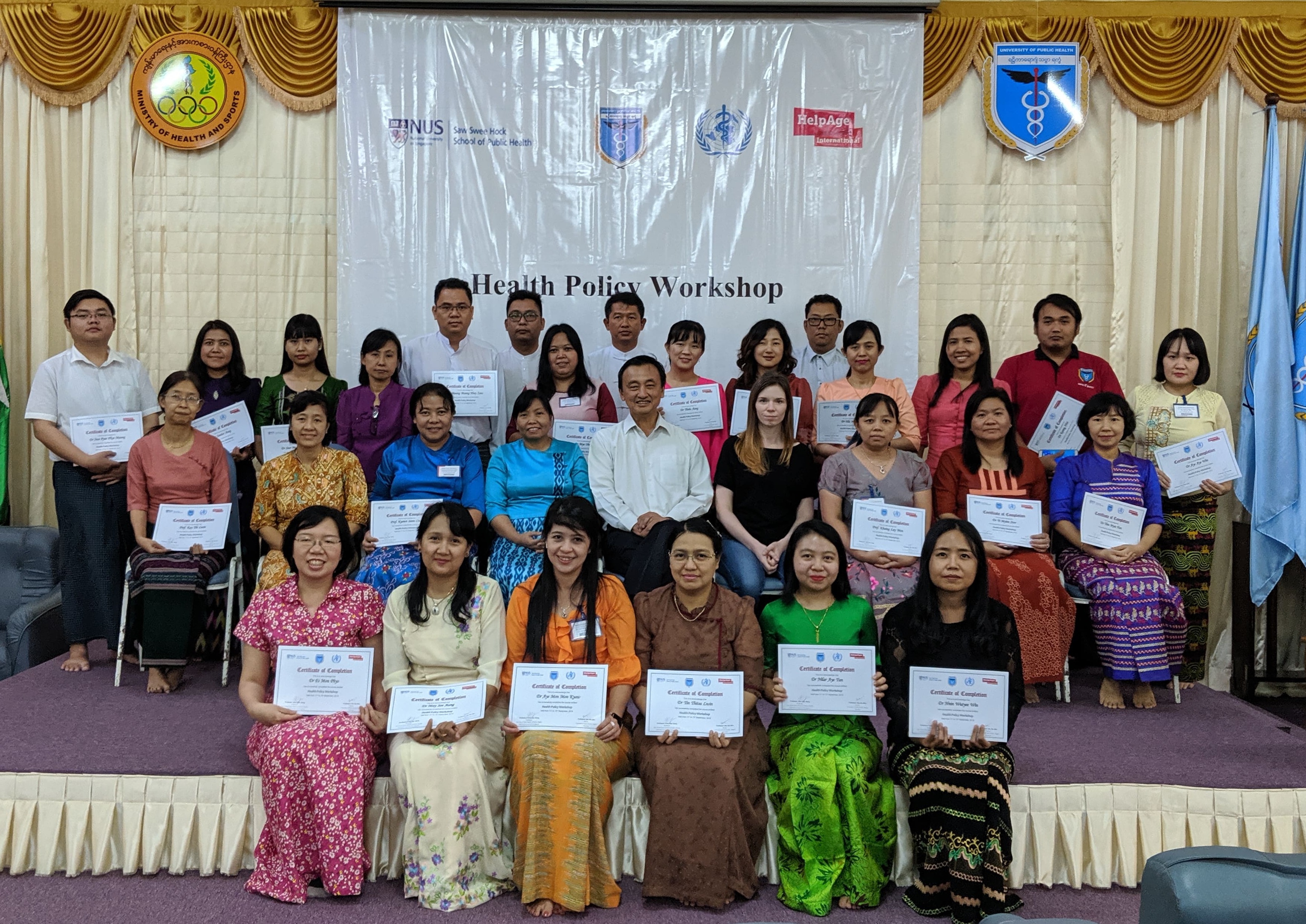Strengthening healthcare decision-making in the Philippines and beyond
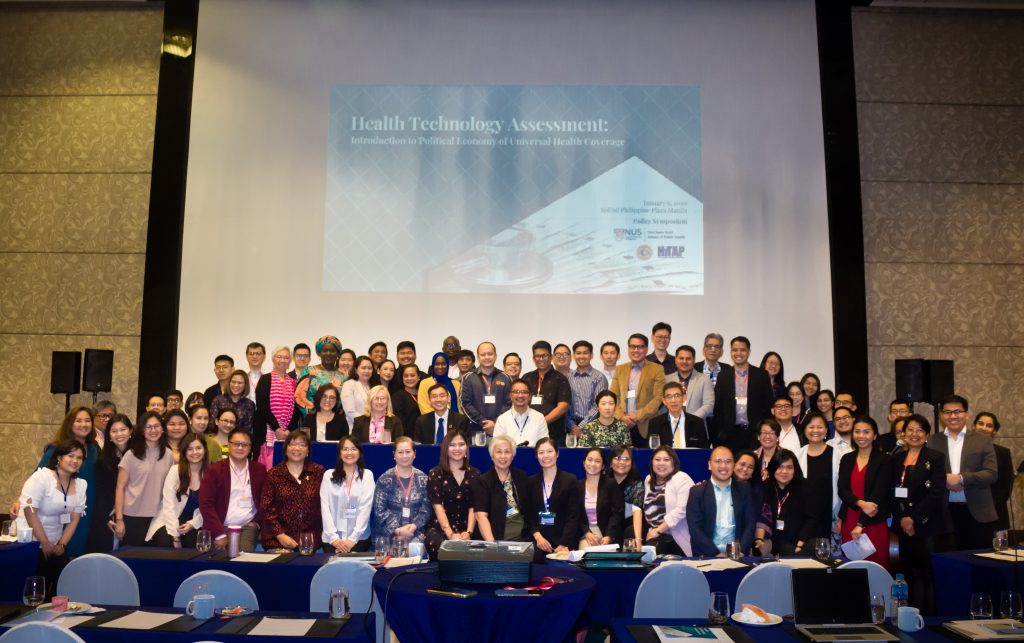
In line with their responsibilities as signatories to the Sustainable Development Goals (SDGs), many low- and lower-middle income countries are working hard to provide better health and well-being for their people. As governments struggle to keep up with rising health expenditures, especially in resource-constrained settings, the need for evidence-informed decision-making for improved health provisioning is only growing more critical. There has been expanding interest in Health Technology Assessment (HTA) as an important method of guiding these policy decisions, especially in terms of priority-setting and designing benefits packages, which effectively and equitably serve the entire populace.
In January 2020, the Saw Swee Hock School of Public Health and the Health Intervention and Technology Assessment Program (HITAP), Ministry of Public Health, Thailand, came together to convene the annual HTA training and policy symposium in Manila, Philippines, as a follow-up to the successful run of the workshop in Singapore last year. Working closely alongside their local partner — the Philippine Department of Health — and encouraged by their commitment to Universal Health Coverage (UHC), which was formalised into legislation in the first quarter of 2019, this three-day event was conducted as part of the ongoing effort to build capacity in HTA. The Philippine UHC Law is one of the few that lays explicit emphasis on HTA as a means of decision-making within its mandate, helping to recognise and institutionalise it, as well as providing legal basis for its application.
A total of 56 participants attended the workshop and symposium, representing the private sector, government agencies, non-governmental organisations and academic institutions from countries around the world. The majority were from Philippines and others from Singapore, Malaysia and Senegal. Teaching faculty from SSHSPH and HITAP, together with guest lecturers from Korea and Japan, extensively discussed health systems in these countries with specific reference to HTA developments in Asia.
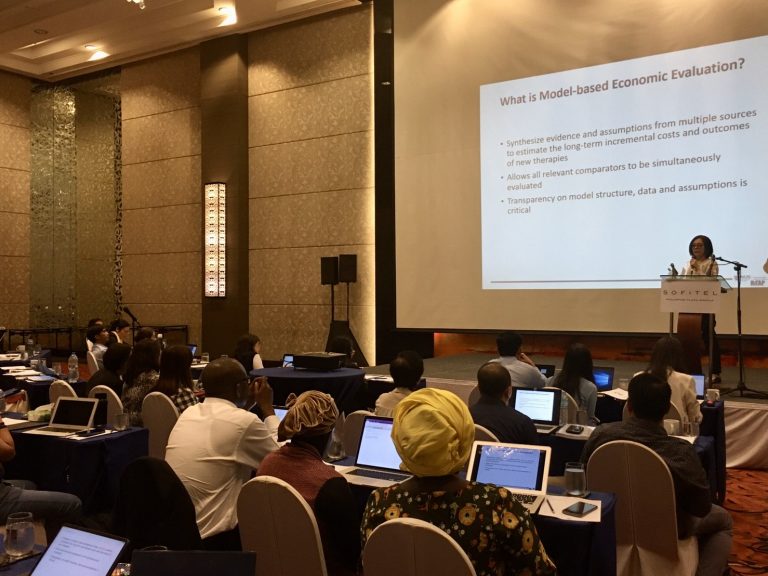
HTA Training Workshop
Using a combination of lectures, group activities and interactive discussion sessions, the workshop offered broad insight into several components of HTA.
Participants had the opportunity to conduct a guided hands-on modelling exercise on the second day, with support from teaching assistants. Group exercises served as a platform for participants to share and learn from one another.
The final discussions were particularly valuable, with many pertinent questions raised on the implementation of HTA, especially for countries at a nascent stage of developing this system and those from varying sociocultural contexts.
In summary, the training workshop showed HTA as a multidisciplinary, participatory, transparent and context-specific method, serving only as a form of guidance and not as the sole decision-making criteria. Economic evidence offered by HTA is best understood alongside political, socio-ethical and legal frameworks.
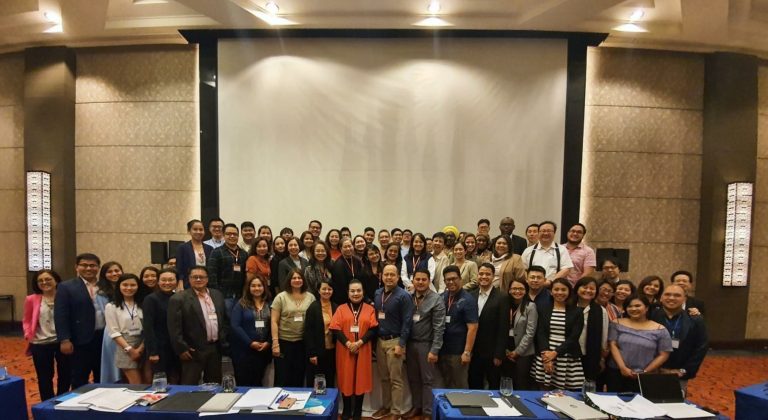
Policy Symposium
The conclusion of the training workshop offered a nice segue into the policy symposium where speakers from Thailand, Singapore, Japan and Korea shared insights into the practical application of HTA evidence in decision-making, using case studies from within their countries and others. Committee members from the newly established Philippine HTA Council also participated in these sessions.
Examples discussed at the symposium demonstrated the need for good governance, transparency and participation within the HTA process, as well as the role of evidence in aiding critical issues such as drug price negotiation and priority setting.
The day’s panels and speakers focused on political-economic and socio-ethical considerations that should be factored into policy processes, as well as decision-making with specific reference to high-cost treatments, using real-world examples.
Truly representing the interdisciplinary nature of the policy process, the symposium brought together experts from various fields of economics, science, anthropology and politics, offering participants a chance to see how the HTA process translates into practice.
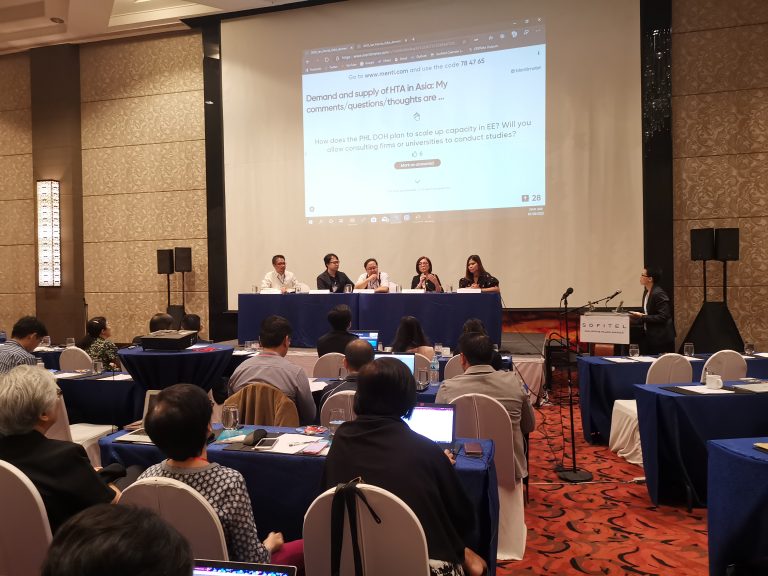
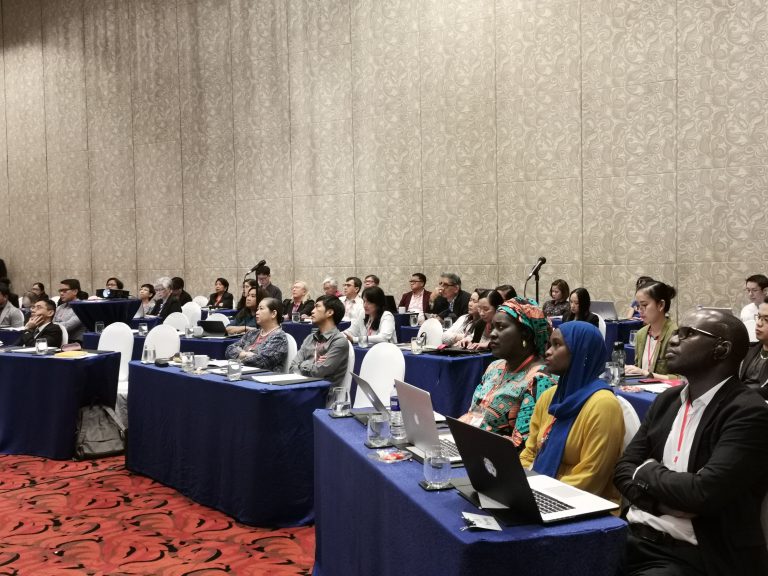
Key Takeaways
By 2023, across the world, 1 billion more people will need to be covered by UHC. With looming uncertainty on gathering the additional resources required to meet this growing demand, there is an urgent need to efficiently and effectively utilise existing resources. This is where HTA comes in — to help provide for everyone in a sustainable, fair and efficient manner.
HTA is not a one-off process that is conducted before introducing a new drug or treatment to the public healthcare system, but a continuous process of refinement and implementation.
As said by Undersecretary of Health, Dr Enrique Domingo, the ‘dawn of UHC’ is upon the Philippines, requiring that they learn and collaborate from others that have previously travelled on this journey. This highlights the need for collaborations not only across countries, but also across sectors within, such as science, technology, health, urban planning and financing.
As highlighted at the symposium, health determinants only account for 25 per cent of health outcomes. The remaining can be attributed to socioeconomic, behavioural and environmental factors. This requires the evidence base to be united, broadened and strengthen for use towards improved decision-making in health.
Next year’s workshop will be held in Bangkok, Thailand, to revitalise discussions on building an evidence base that is informed by HTA among other methods, to aid low- and lower-middle income countries in strengthening their health systems and re-affirming their commitments to the SDGs.
This article was written by Aparna Ananthakrishnan, Project Associate/ODI Fellow, HITAP.

